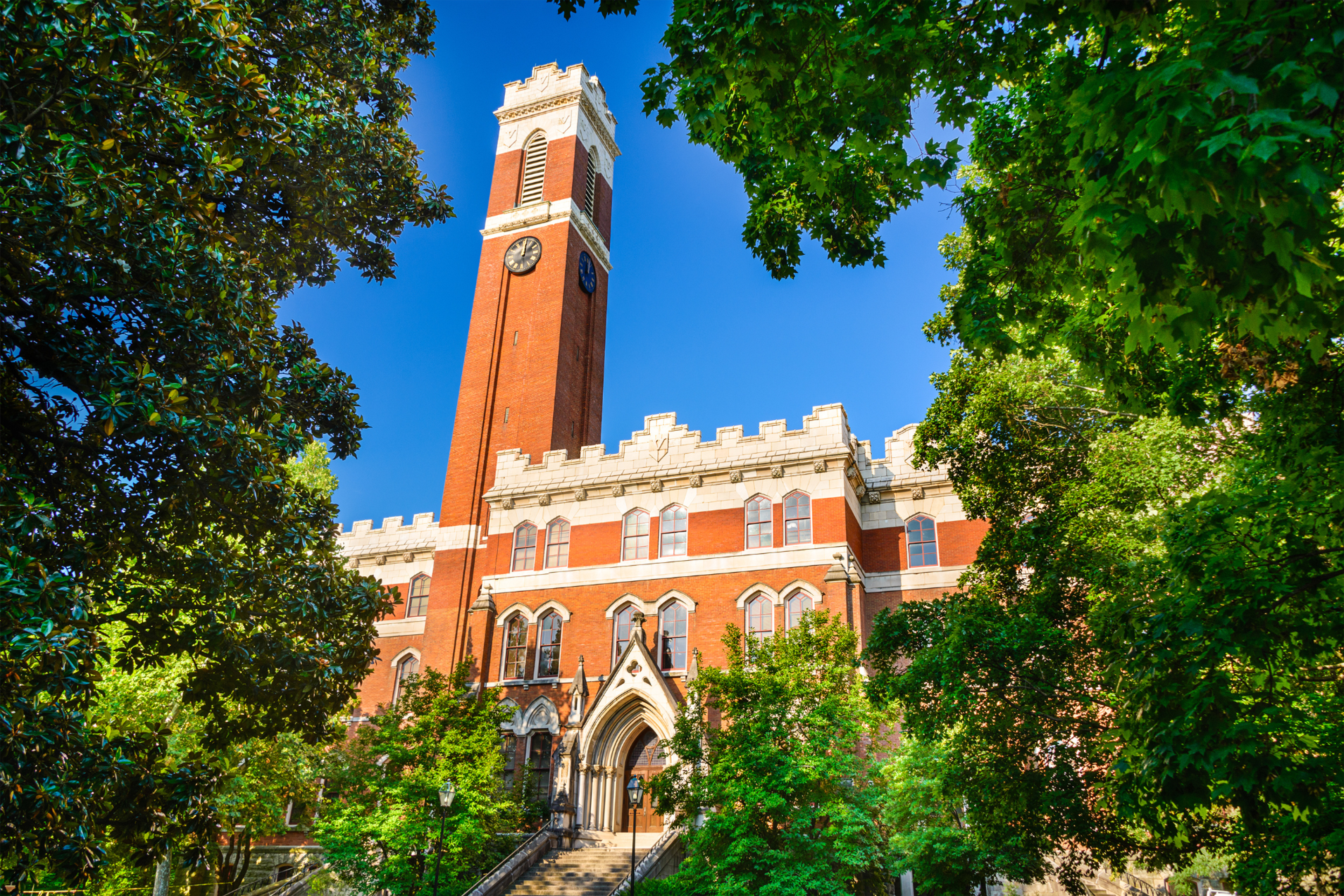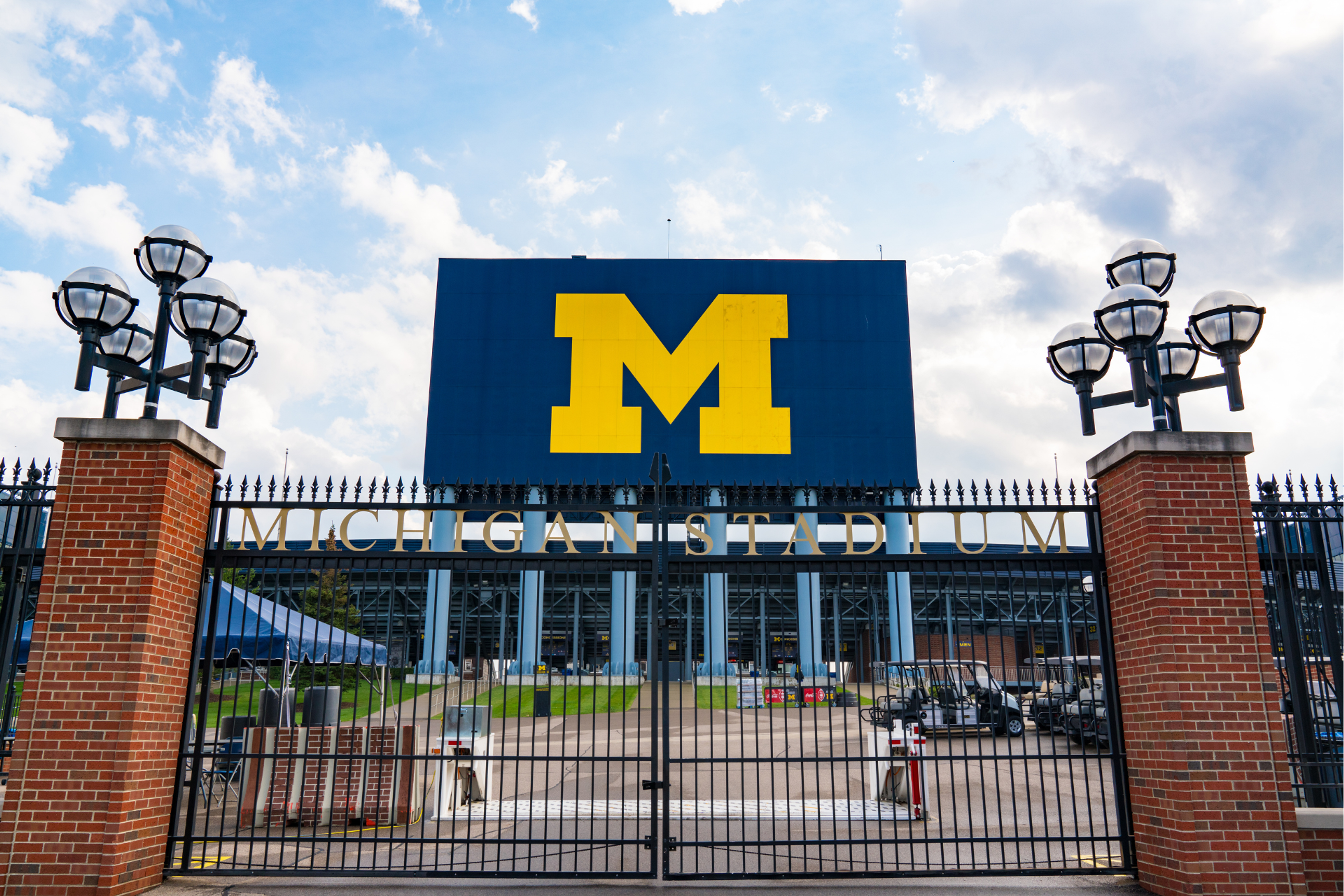The 10 Best Medical Schools in Tennessee
Discover the top 10 medical schools in Tennessee and explore the exceptional education, clinical opportunities, and research programs they offer.
Posted March 24, 2025

Table of Contents
Thinking about medical school in Tennessee? You’re in the right place! Tennessee is home to some of the top medical schools, offering high-quality education, diverse clinical rotations, and strong research opportunities. Whether you’re aiming for a Doctor of Medicine degree or interested in rural medicine, Tennessee has a program for you.
In this article, we’ll break down the best medical schools in Tennessee, what they offer, and how to choose the right one for you. Whether you're a medical student looking for strong graduate medical education or a Tennessee resident wanting to stay in-state, this list will help you decide!
Why Study Medicine in Tennessee?
Tennessee offers a unique medical education experience, blending world-class research, diverse clinical rotations, and opportunities to work in rural communities. Whether you’re drawn to cutting-edge research at Vanderbilt University Medical Center or hands-on training in Johnson City, there’s something for every aspiring doctor.
Many medical college schools in Tennessee focus on primary care physicians, preparing students to work in both urban and rural medicine settings. This is especially important for Tennessee residents, as parts of the state face physician shortages.
Beyond clinical training, Tennessee medical schools emphasize medical ethics, patient care, and health disparities. These programs equip students with the skills needed to practice medicine effectively in any environment. Plus, with graduate medical education programs and strong learning communities, Tennessee schools help students transition smoothly into residency and beyond.
The 10 Best Medical Schools in Tennessee
Tennessee is home to several outstanding medical college schools, offering top-tier graduate medical education, hands-on clinical rotations, and strong research programs. Whether you're looking for a Doctor of Medicine (MD) or Doctor of Osteopathic Medicine (DO), Tennessee has options for all aspiring physicians.
Some schools, like Vanderbilt University School of Medicine, focus on advanced research and specialized medical training. Others, such as East Tennessee State University (ETSU) Quillen College of Medicine, emphasize rural medicine and training primary care physicians for underserved areas.
From prestigious institutions to newer programs, Tennessee offers diverse pathways for medical students. Below, we highlight the best medical schools in Tennessee, including their acceptance rates, GPA and MCAT requirements, and what makes each program unique.
1. Vanderbilt University School of Medicine

- Acceptance Rate: 4-5%
- Average GPA: 3.9
- Average MCAT: 520+
Vanderbilt University School of Medicine is consistently ranked among the top medical schools in the country. Known for its rigorous curriculum and cutting-edge clinical rotations, Vanderbilt prepares students for a wide range of specialties, including global health and medical ethics.
Located in Nashville, the school is affiliated with Vanderbilt University Medical Center, one of the leading research hospitals in the U.S. The Doctor of Medicine program emphasizes patient care, hands-on training, and innovative learning methods. Students benefit from learning communities, where they receive mentorship from experienced faculty members.
2. University of Tennessee Health Science Center (UTHSC) College of Medicine

- Acceptance Rate: 8%
- Average GPA: 3.7
- Average MCAT: 510
The University of Tennessee Health Science Center (UTHSC) College of Medicine is one of the top medical schools for Tennessee residents, offering strong graduate medical education and a commitment to training primary care physicians. Located in Memphis, UTHSC has additional campuses in Knoxville, Chattanooga, and Nashville, giving students access to diverse clinical rotations.
UTHSC provides hands-on experience in both urban and rural communities, ensuring students gain exposure to different patient populations. The school also emphasizes medical ethics, health disparities, and patient care, preparing students for real-world medical challenges.
With strong research programs, partnerships with major hospitals, and affordable tuition for in-state students, UTHSC is a great option for students looking to practice medicine in Tennessee.
3. Meharry Medical College

- Acceptance Rate: 6-8%
- Average GPA: 3.5
- Average MCAT: 503-506
Meharry Medical College, located in Nashville, is one of the nation’s top historically Black medical schools. It is known for its mission to train primary care physicians and address health disparities in underserved communities.
Meharry places a strong emphasis on patient care and providing medical services to rural communities and urban populations in need. Students complete clinical rotations at Meharry Medical Group, as well as hospitals throughout Tennessee, gaining hands-on experience in both public health and clinical practice.
4. East Tennessee State University (ETSU) Quillen College of Medicine

- Acceptance Rate: 7-9%
- Average GPA: 3.7
- Average MCAT: 508
Located in Johnson City, ETSU Quillen College of Medicine is known for its strong focus on rural medicine and training primary care physicians to serve rural communities across Tennessee and beyond. The school places a strong emphasis on patient care, clinical practice, and medical ethics, ensuring students are well-prepared to address health disparities.
Students complete clinical rotations in various settings, including community hospitals, underserved areas, and learning communities that promote mentorship and collaboration. For students looking to work in rural medicine, Quillen offers unique training opportunities that set it apart from other medical college schools in Tennessee.
5. Lincoln Memorial University – DeBusk College of Osteopathic Medicine (LMU-DCOM)
- Acceptance Rate: 8-10%
- Average GPA: 3.5
- Average MCAT: 503
Lincoln Memorial University – DeBusk College of Osteopathic Medicine (LMU-DCOM) is one of the largest osteopathic medical schools in the country. Located near the Cumberland Gap Mountains, LMU-DCOM provides students with a hands-on approach to patient care, focusing on osteopathic manipulative medicine (OMM) and clinical practice.
The school emphasizes rural medicine, preparing students to work in rural communities with limited healthcare access. Tennessee residents looking for an affordable, community-driven education will find LMU-DCOM an excellent choice, especially if they are interested in primary care and clinical rotations in underserved areas.
Read: Top 10 Medical Schools in the U.S.
6. Belmont University College of Medicine (Coming Soon – 2025)
Set to open in 2025, Belmont University College of Medicine will be one of Tennessee’s newest medical college schools. Located in Nashville, the school aims to train future doctors with a focus on clinical rotations, medical ethics, and graduate medical education.
Although details about admission requirements are still developing, Belmont is expected to provide a learning community that integrates research, patient care, and real-world medical experience. Students will benefit from the university’s partnerships with local hospitals and Vanderbilt University Medical Center.
7. Southern College of Optometry (Memphis) – Medical Sciences Program
- Acceptance Rate: 20%
- Average GPA: 3.68
- Average MCAT: 339
While not a traditional medical school, the Southern College of Optometry (SCO) in Memphis offers a medical sciences program that provides essential training for those pursuing careers in healthcare. The program focuses on patient care, clinical practice, and specialized medical training for future optometrists.
Students at SCO receive hands-on clinical rotations through its partnerships with medical centers and community clinics. The curriculum is designed to develop research skills and learning communities that prepare students for success in healthcare professions.
8. Baptist College of Health Sciences – Medical Sciences Program
- Acceptance Rate: 35%
- Average GPA: 3.21
- Average MCAT Score: Not specified
Baptist College of Health Sciences, based in Memphis, provides a strong medical sciences program that serves as a stepping stone for students aiming to enter medical school or other healthcare fields. The program emphasizes clinical rotations, medical ethics, and essential patient care skills.
Students benefit from Baptist’s affiliation with major healthcare institutions, offering hands-on learning and real-world clinical practice experience. Although it does not grant Doctor of Medicine degrees, it is a great choice for students planning to transition into medical college schools in Tennessee.
9. South College – Physician Assistant & Medical Sciences Program
- Acceptance Rate: Not specified
- Average GPA: Minimum required is 2.75; average accepted GPA varies above this
South College offers a Physician Assistant (PA) program and a medical sciences program designed for students preparing for careers in patient care. With a curriculum focused on clinical practice and health disparities, South College provides students with hands-on training in healthcare settings.
The medical sciences program helps students strengthen their backgrounds in healthcare, making it a great option for those planning to apply to medical school later. Through partnerships with local hospitals and learning communities, students gain the experience needed for careers in medicine and other healthcare professions.
10. Vanderbilt University School of Nursing – Medical Training Opportunities
Though primarily focused on nursing education, the Vanderbilt University School of Nursing offers excellent medical training opportunities for students looking to expand their knowledge in patient care and clinical practice.
With access to Vanderbilt University Medical Center, students receive high-level clinical rotations that prepare them for careers in healthcare. The program integrates medical ethics, research opportunities, and hands-on experience, making it a valuable pathway for those interested in medicine.
Admission Process
Aspiring medical students often wonder about the admission process at these top medical schools in Tennessee. While each school has its specific requirements and criteria, several common aspects are worth considering.
Academic excellence is a fundamental requirement for admission to any medical school. Strong performance in prerequisite courses, such as biology, chemistry, physics, and mathematics, is essential. Additionally, a competitive MCAT score and outstanding letters of recommendation are typically expected.
However, it's important to note that medical schools in Tennessee value more than just academics. They also look for well-rounded individuals who demonstrate a genuine passion for medicine, possess strong communication and interpersonal skills, and exhibit leadership potential.
How to Choose the Best Medical School in Tennessee
Choosing the right medical school is a big decision. Tennessee offers a variety of options, from research-focused programs like Vanderbilt University to schools dedicated to rural medicine like East Tennessee State University (ETSU) Quillen College of Medicine. When making your decision, consider factors like clinical rotations, cost, location, and how well the program aligns with your career goals.
For students interested in graduate medical education and research, schools like Vanderbilt University Medical Center provide access to cutting-edge facilities. Meanwhile, those who want to practice medicine in underserved areas may find schools like LMU-DCOM or Meharry Medical College a better fit.
Tennessee also offers affordable in-state tuition, strong learning communities, and excellent residency placements. Whether you’re looking for primary care physicians training or specialized programs, Tennessee has a school that fits your needs.
Factors to Consider
When choosing a medical school, consider these key factors:
- Curriculum & Learning Style – Some schools focus on clinical practice, while others emphasize research and medical ethics.
- Clinical Rotations – Look for schools with diverse training opportunities in hospitals, rural communities, and urban centers.
- Location & Cost – Consider tuition rates and cost of living, especially for Tennessee residents looking for in-state tuition benefits.
- Residency Match Rate – Research each school’s graduate medical education success and where students match for residency.
- Mission & Focus – Some schools prioritize primary care physicians, while others emphasize specialties like global health or rural medicine.
- Research & Facilities – Schools like Vanderbilt University provide cutting-edge labs and training in patient care and medical advancements.
Taking these factors into account will help you find the right medical school for your career path.
Final Thoughts: Which Tennessee Medical School is Right for You?
Tennessee offers a wide range of medical college schools, each with unique strengths. Whether you want to train in a rural community, focus on research skills, or study at a nationally ranked institution, there’s a school for you.
Vanderbilt University is ideal for students looking for top-tier research and specialty training, while UT College of Medicine and ETSU Quillen College of Medicine focus on primary care and serving underserved populations. LMU-DCOM and Meharry Medical College offer strong programs for students passionate about rural medicine and addressing health disparities.
By considering your goals, financial needs, and preferred clinical practice settings, you can find the best fit for your medical education. No matter where you go, Tennessee provides excellent opportunities for future doctors.
FAQs
How many medical schools are in Tennessee?
- Tennessee is home to six medical schools:
- Vanderbilt University School of Medicine in Nashville
- University of Tennessee Health Science Center College of Medicine with campuses in Memphis, Knoxville, Chattanooga, and Nashville
- East Tennessee State University James H. Quillen College of Medicine in Johnson City
- Meharry Medical College in Nashville
- Lincoln Memorial University-DeBusk College of Osteopathic Medicine in Harrogate and Knoxville
- Belmont University Thomas F. Frist Jr. College of Medicine in Nashville
What is the top medical school in Tennessee?
- Vanderbilt University School of Medicine is widely recognized as the leading medical school in Tennessee, known for its rigorous academic programs and innovative research initiatives.
What are the average GPA and MCAT scores required for Tennessee medical schools?
- Admission requirements vary by institution. For example, Vanderbilt University School of Medicine has a median GPA of 3.94 and a median MCAT score of 521. In contrast, Meharry Medical College has a median GPA of 3.48 and a median MCAT score of 505.
Do Tennessee medical schools accept out-of-state applicants?
- Yes, several Tennessee medical schools accept out-of-state applicants. For instance, Vanderbilt University School of Medicine and Meharry Medical College have a significant number of students from outside Tennessee. However, public institutions like the University of Tennessee Health Science Center College of Medicine tend to have a higher percentage of in-state students.
What financial aid options are available for medical students in Tennessee?
- Financial aid options vary by institution and may include scholarships, grants, and loans. It's essential to consult each medical school's admissions office or financial aid department for specific information on available assistance.
Read: The Journey to Becoming a Doctor: Skills, Education, and Commitment












